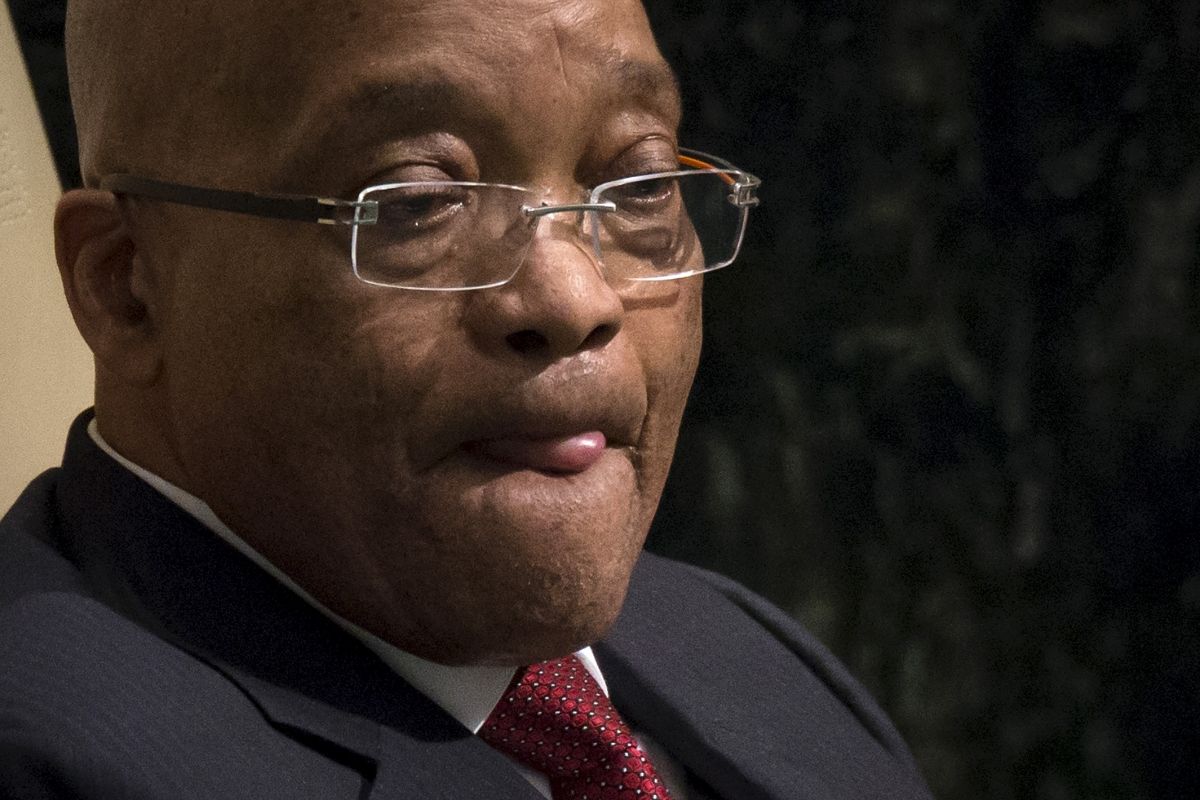
This article first appeared on the Council on Foreign Relations site.
South African President and African National Congress (ANC) party leader Jacob Zuma has complained that the ruling ANC is losing members. At a party policy forum in early October he announced that party membership had fallen to 769,000 from some 1.2 million three years previously.
Zuma said that the party is failing to recruit new members and that some local ANC officials discourage new members from joining so that they are unchallenged in their particular satraps. The ANC has always regarded itself as a mass liberation movement and the vanguard of the struggle against apartheid. Hence, a decline in membership is a blow to its collective self-esteem.
Predictably, the party's response has been defensive. Some party officials are claiming that membership has not declined, but has increased. They say that the decline cited by Zuma reflects those who have not paid their dues or have not registered on the party's system. Others, however, ascribe the drop to "people serving their own interests."
As a mass liberation movement, the party's self-image has been that power flows from the grassroots upward. But there is anecdotal evidence that many local party structures have atrophied, and that patronage-clientele networks more interested in government contracts than in the welfare of the people are taking over parts of the party, especially at the local and provincial levels.
The media speculates that the decline is a consequence of the party's failure to create jobs and improve housing and services, especially the delivery of water and electricity. Infighting within the party also hurts its image. In 2017, if not before, the ANC will elect a new party leader to succeed Zuma. Leading candidates are deputy party leader Cyril Ramaphosa, chairwoman of the African Union Commission Nkosazana Dlamini-Zuma (the president's ex-wife), party chairwoman Baleka Mbete, and party treasurer Zweli Mkhize.
The party has been in power since the transition to "non-racial" democracy in 1994. Though firmly multi-racial in its ideology, its electoral support comes overwhelmingly from the 80 percent of South Africa's population that is black. Its initially multi-racial leadership is increasingly black. The party's share of the vote in the elections of 2014 declined to 62.15 percent from 65.9 percent in 2009.
Meanwhile, party politics appear to be opening up. The share of votes for the opposition Democratic Alliance (DA) increased from 16.66 percent in 2009 to 22.23 percent in 2014. Traditionally the party of whites and coloureds, the DA is beginning to attract black voters. The latter may have accounted for as much as 15 percent of the DA's vote in 2014. The DA has selected a black party leader, Mmusi Maimane, as part of its effort to attract black electoral support. The party already governs the Western Cape and the city of Cape Town. Mmusi Maimane's political base is Johannesburg.
A DA party goal is to win the 2016 Johannesburg city elections, and many observers believe this is possible. On the left, Julius Malema's radical Economic Freedom Fighters (EFF) party is also attracting some who formerly voted for the ANC. The largest and richest trade union in South Africa, the National Union of Metal Workers, appears to be moving toward the establishment of an additional party on the left. It has the potential to attract voters from both the ANC and the EFF.
Party political pluralism is a healthy development for South African democracy.
John Campbell is the Ralph Bunche senior fellow for Africa policy studies at the Council on Foreign Relations (CFR) in New York, where this article first appeared
Uncommon Knowledge
Newsweek is committed to challenging conventional wisdom and finding connections in the search for common ground.
Newsweek is committed to challenging conventional wisdom and finding connections in the search for common ground.





